Introduction to the Flavor of Yunnan Fine Coffee the extraction parameters of water-powder specific water temperature of Yunnan coffee
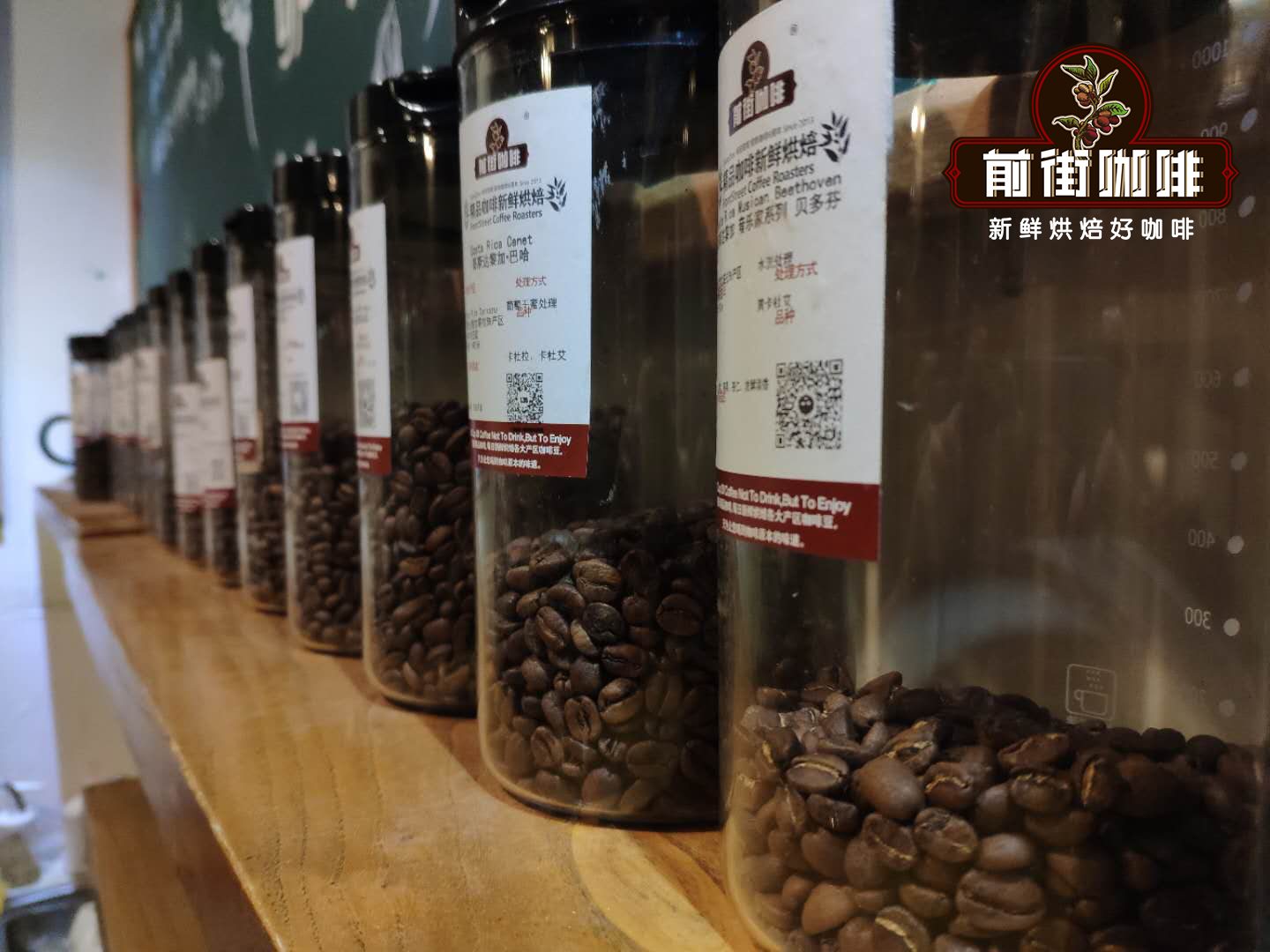
Professional coffee knowledge exchange more coffee bean information please follow the coffee workshop (Wechat official account cafe_style)
The recent release of Yunnan Coffee as the theme of the film "coming home at one o'clock" has attracted people's attention to Yunnan coffee, and the popularity of Yunnan coffee has risen to another level. So what is the flavor of Yunnan coffee? today, Qianjie will share the details of Yunnan coffee. Why do Yunnan coffee beans pay so much attention to treatment in recent years? In recent years, Yunnan single coffee often appears in the major consumer markets as a special treatment, which undoubtedly changes the public's bad impression of Yunnan coffee in a short period of time. If you are careful, you will find that most of the coffee varieties used in various special treatments are Katim, that is, Yunnan small-grain coffee.
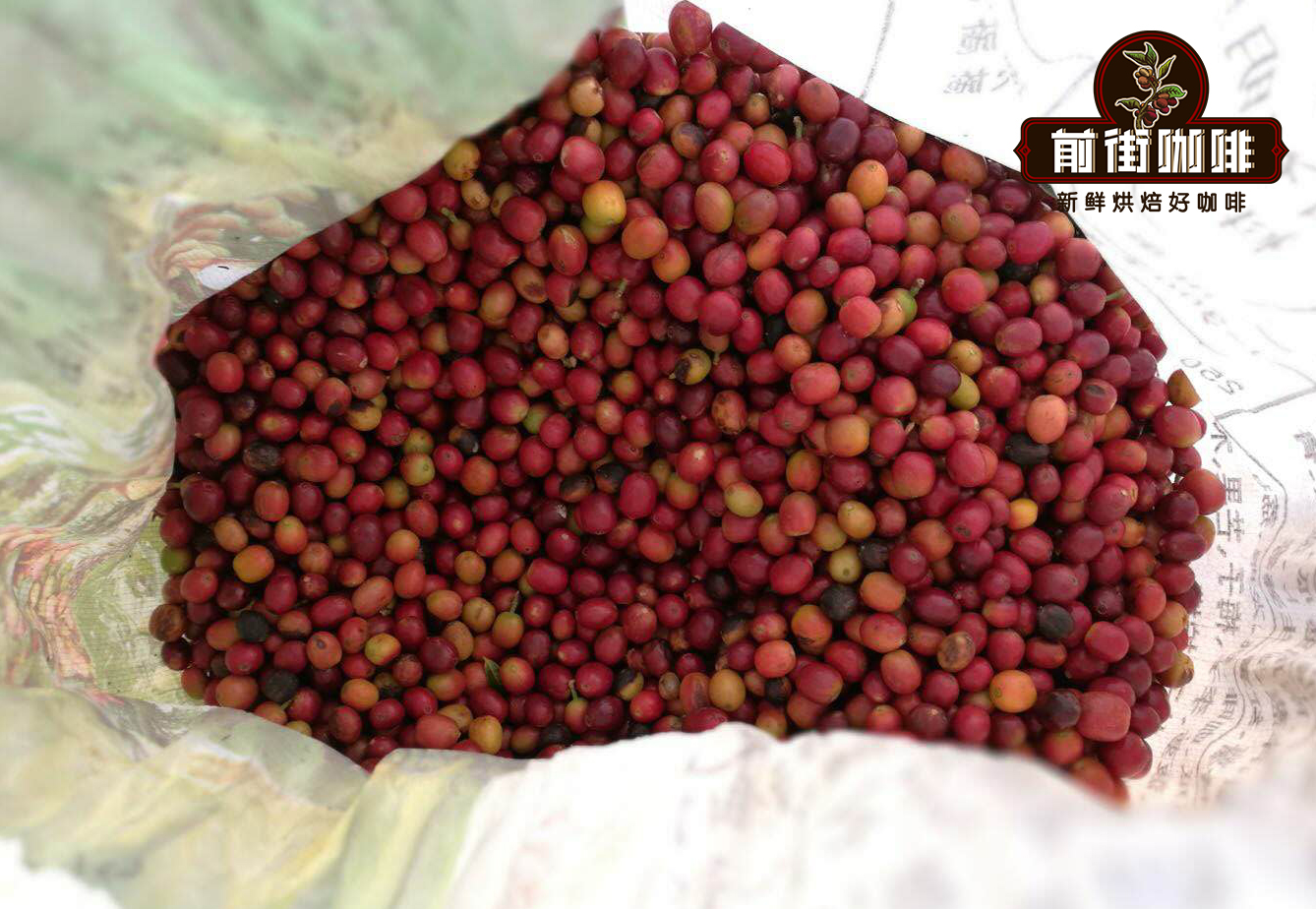
Katim coffee variety Katim is a combination of Arabica and Robusta. Robusta has good resistance to leaf rust and rich oil, high yield and easy to grow. Katim has 25% of the Robusta gene after crossing with Arabica. Katim has 25% of the Robusta gene, which improves resistance to leaf rust and retains rich oil. at the same time, it also has the rich taste of some tin card original species. Nowadays, Katim is widely planted in Yunnan. However, Qianjie is well aware that a coffee that can maintain a stable and good flavor for a long time is often inseparable from the problems of coffee variety, planting environment, agricultural technology and so on. The change in the flavor treatment of coffee directly from the end of agriculture will only cure the symptoms rather than the root causes. So Qianjie went on with our idea of growing fine coffee while baking coffee. At the same time, we also visited the hot science institute (Tropical Agricultural Science Research Institute), which has in-depth research on coffee cultivation and the coffee provenance bank of the Ministry of Agriculture. A small number of farmers who planted fine coffee have found out the reasons why Tibica and Bourbon, the mainstream varieties of fine coffee, are not cultivated in Yunnan, and under the circumstances of coincidence. A piece of land suitable for planting was found on the border between Yunnan and Myanmar, and the road for planting in Yunnan began on Qianjie.
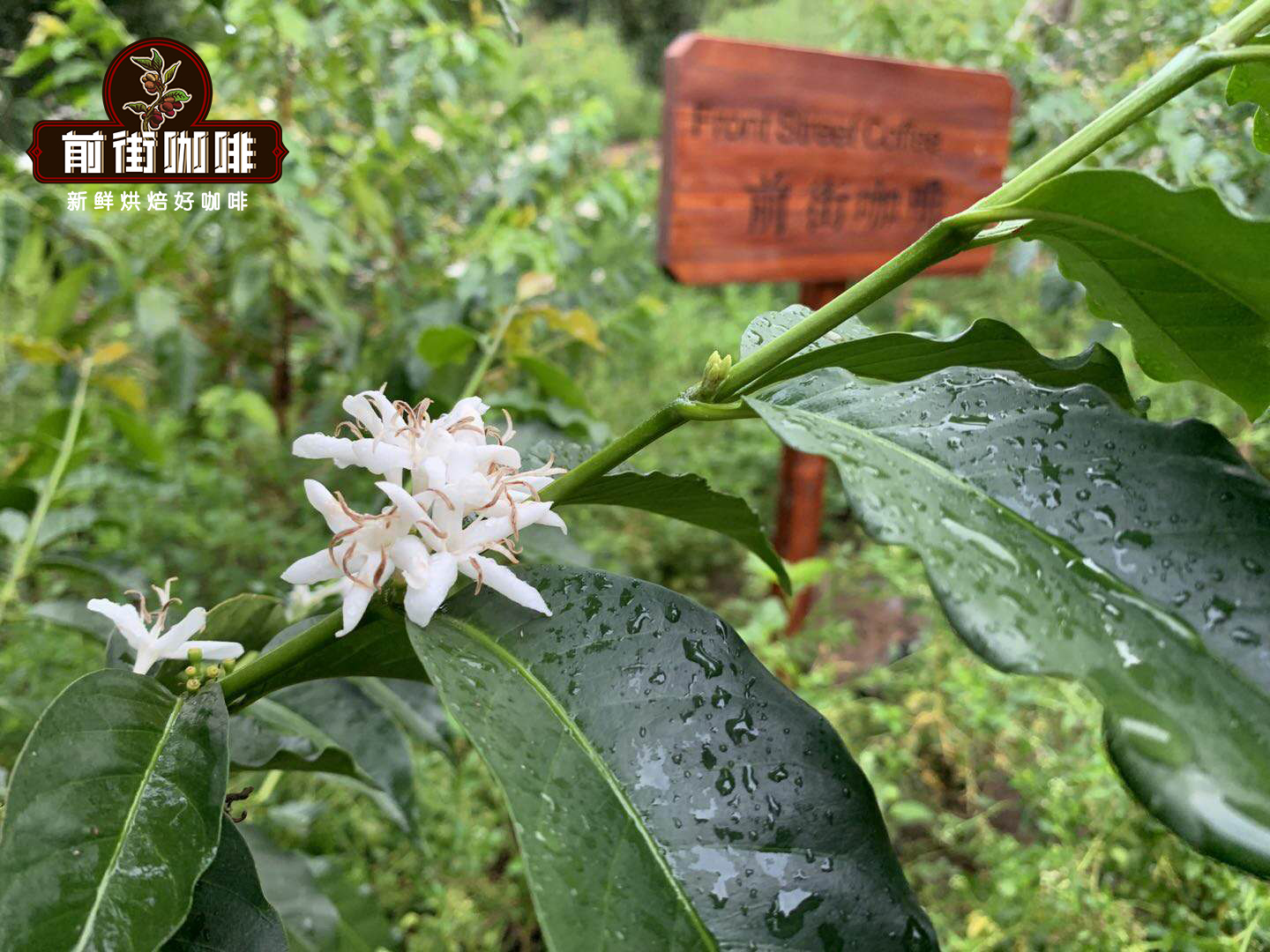
The coffee seedling chosen in front of the street is a tin pickup. This is an ancient coffee variety, its flavor is good, pure blood of the ancient Arabica species also has many weaknesses, such as low yield, weak vitality, poor disease resistance. It is for these reasons that more energy and resources are needed to cultivate iron pickups, which is why Yunnan farmers prefer Katim with high yield and strong vitality. The Ironpika coffee variety has distinct characteristics, and it is probably the easiest to identify. These plants are conical, with main vertical trunks up to 5 meters high. This height means that the distance between branches and nodes on the same branch is longer than that of other varieties. The lateral branches form an angle of 50 to 80 °with the vertical trunk. The trunk and branches are not very strong. Leaves, fruits and raw beans are usually slender, and the bud tips of young leaves are bronze. Ironpickup has a smoother leaf surface and fewer wavy boundaries than other Arabica varieties. The typical iron pickup fruit is bright red when it is ripe.
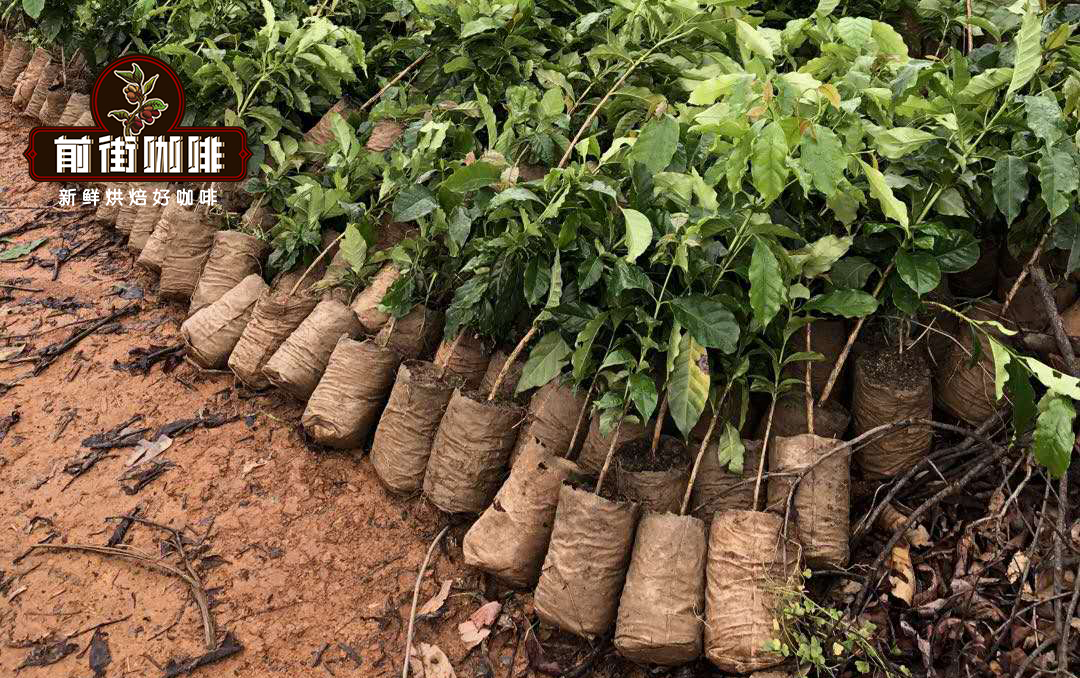
The bronze color of the top leaf of the iron pickup is one of the characteristics, with large beans, pointed oval or thin pointed shape, and some people call it "red top coffee". Iron pickup coffee has its unique quiet and clean flavor, as well as balanced features, high cleanliness, but the only drawback is insufficient production, altitude requirements, at the same time easy to infection with leaf rust, and resistance to diseases and insect pests is not strong. Coffee cultivation in Yunnan is mainly distributed in Lincang, Baoshan and Pu'er, which has natural resources of low latitude, high altitude (1000-2000m) and large temperature difference between day and night. Yunnan has become a golden growing area for producing Arabica coffee. Pu'er coffee has a history of 100 years. It began to be cultivated at the end of the 19th century and developed into industrialization in 1988. Now the coffee planting area of the whole city has reached 767000 mu. It has become the main coffee producing area and coffee trade distribution center with the largest planting area, the highest yield and the best quality in the mainland.
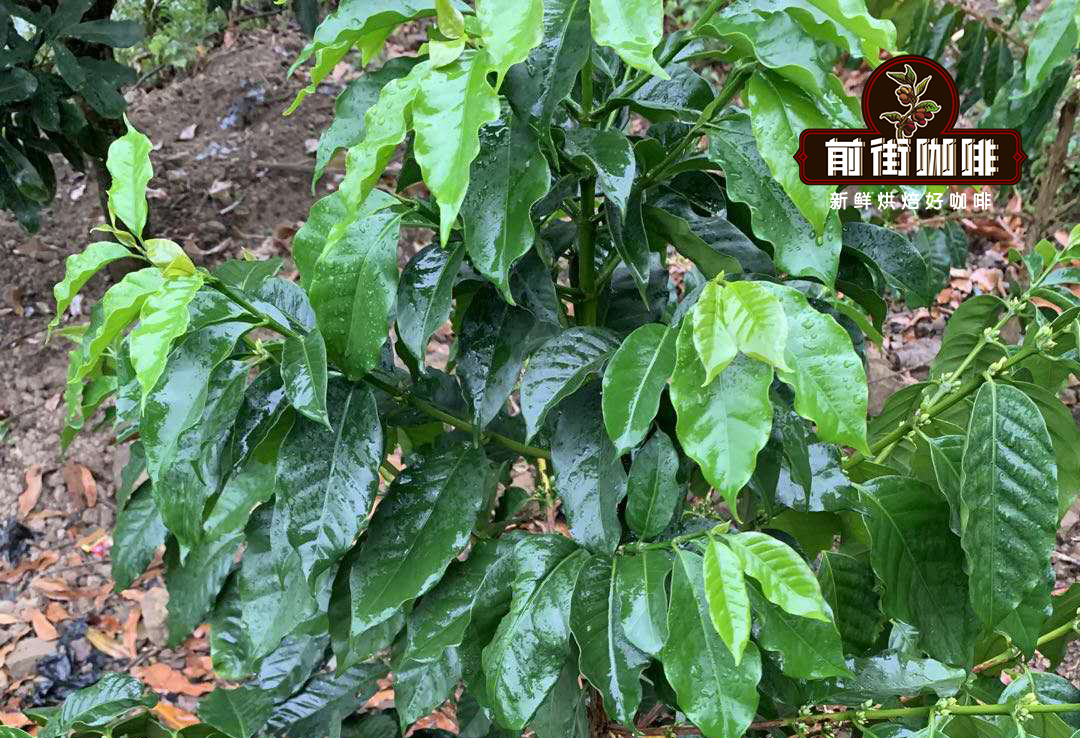
Lincang: located in the southwest of Yunnan Province, the Tropic of Cancer runs through the south, Pu'er to the east, Dali to the north, Baoshan to the west, and Myanmar to the southwest. It is a bright pearl in the southwest of the motherland because it is bordered by the Lancang River. The annual average temperature in Lincang is between 16.8 ℃ and 17.2℃. The dry and wet season is obvious and the sunshine is sufficient. Baoshan: the average temperature in Baoshan is 21.5℃, the highest is 40.4 ℃, and it is basically frost-free all the year round. It is recognized as the best producing area of small-grain coffee. The small-grain coffee cultivated here is famous at home and abroad for its strong but not bitter, fragrant but not strong, well-proportioned small noodles, mellow and fruity. Baoshan small-grain coffee in Yunnan has a long history of cultivation. Baoshan small-grain coffee can be said to be a national geographical indication product. The Yunnan coffee growing area of Qianjie Coffee is also sitting here.
Qianjie coffee Yunnan small grain coffee
Producing area: Baoshan, Yunnan
Altitude: 1200m
Variety: Katim
Treatment: washing
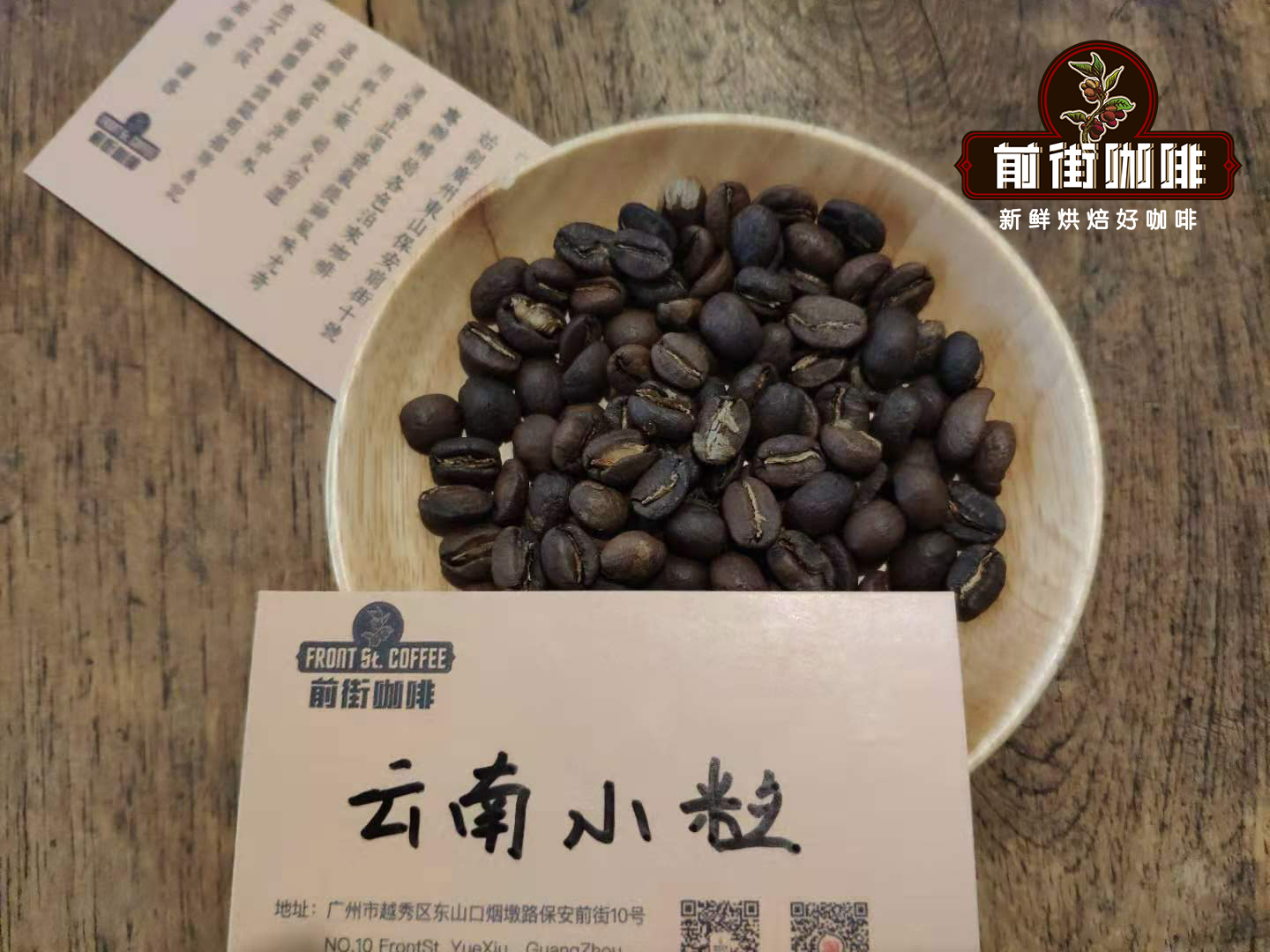
Qianjie Coffee Yunnan Huaguo Mountain
Producing area: Baoshan, Yunnan
Altitude: 1200m
Variety: iron pickup
Treatment: washing
The traditional washing method of Yunnan coffee came to the Yunnan producing area of the planting season and really realized what the rainy season is. It is sunny for a few minutes and it rains for half an hour. Because of the perennial rainy season and unstable climate, Yunnan coffee beans on the front street are usually treated with water. Use a peeling machine to separate most of the pulp from the coffee beans, then guide the shelled beans to a clean sink, soak them in water and ferment to completely remove the residual pulp layer. In the past (about five years ago), washing was often the first choice for good coffee bean treatment. Through water treatment, unripe beans and defective beans are selected because of buoyancy, and the fermentation process is easier to control, so the flavor is not mixed like sun beans, but shows obvious acidity, complexity and cleaner (without any negative flavor, such as astringency or sharpness). Qianjie Coffee roasting Analysis Yunnan small Coffee (Katim): Yangjia 800N (roasting capacity 300g): furnace temperature 190 ℃ into the pot, firepower 120, throttle open 3; tempering point 1 temperature 39 ℃, open the throttle to 4, the firepower remains unchanged; when the furnace temperature is 166℃, the bean table turns yellow, the grass flavor disappears completely, and enters the dehydration stage, when the furnace temperature reaches 188℃, the firepower is adjusted to 60 ℃, the throttle is 5. The smell of toast obviously changes to the smell of coffee, which can be defined as a prelude to an explosion. At this time, it is necessary to listen clearly to the sound of the explosion point. When the sound of the explosion point begins to explode, the throttle will remain unchanged. After an explosion, the development will take place for 3 minutes, and 198 ℃ will be put into the pot.
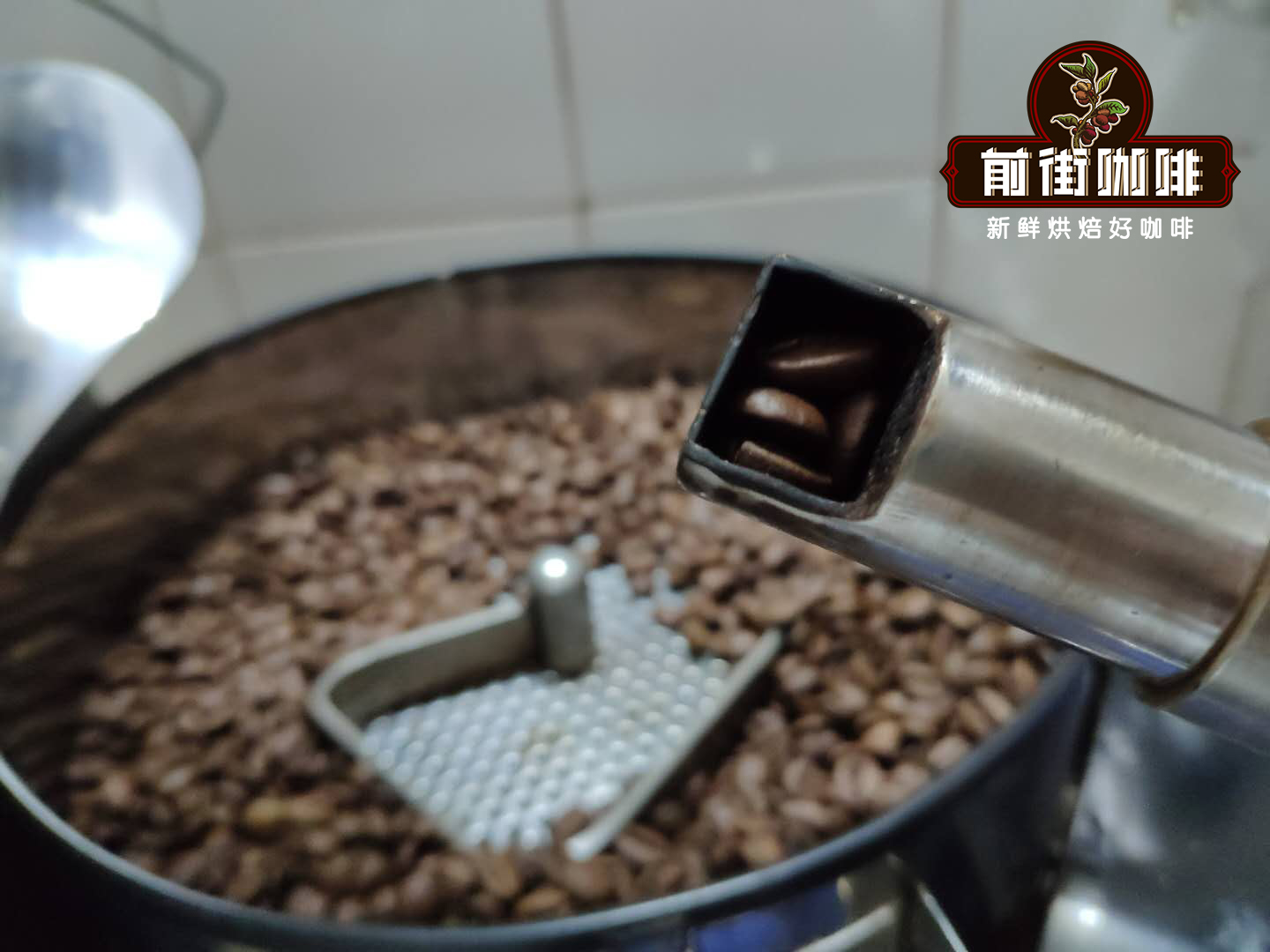
Yunnan Huaguoshan (Tieka): Yangjia 800N (baking capacity 300g): furnace temperature to 200 degrees Celsius into the pot, throttle set 3 degrees Celsius for 1 minute, adjust firepower 160 degrees, return temperature 1 minute, turn yellow, temperature 149 degrees, grass smell disappears completely, dehydration is completed, firepower remains unchanged, throttle changes 4. In the 6th minute, the firepower was adjusted to 140, in the 7th minute, the firepower was adjusted to 120, and in the 8th minute, ugly wrinkles and black markings appeared on the bean table, and the smell of toast obviously changed to coffee, which could be defined as a prelude to an explosion. At this time, listen clearly to the sound of the explosion point. Start to explode at 8: 37 ", fire power is 90, the throttle is fully open, and the firepower is adjusted to 20 degrees in the 9th minute. Go to the pot. Qianjie coffee cup test report Qianjie coffee will be tested within 8-24 hours after the sample coffee beans are roasted. Baristas in front of the street generally use ceramic bowls with a capacity of 200ml, which will be marked with 150ml and 200ml marks. According to SCAA standards, the TDS of water is about 150ppm, TDs is too low will easily cause excessive extraction, too high will affect the taste and easy to lack of extraction, the water temperature used in the cup test is 94 °. The cup test grinding degree according to the cup test standard of SCAA, the grinding degree is controlled as 20 standard screen (0.85mm), and the passing rate is 70% Mel 75%. Ratio: 11 grams of coffee powder plus 200 milliliters of hot water, that is, 1VR 18.18, so that the concentration of extraction happens to be within the range of 1.15% Murray 1.35% gold cup, soaking time: 4 minutes.
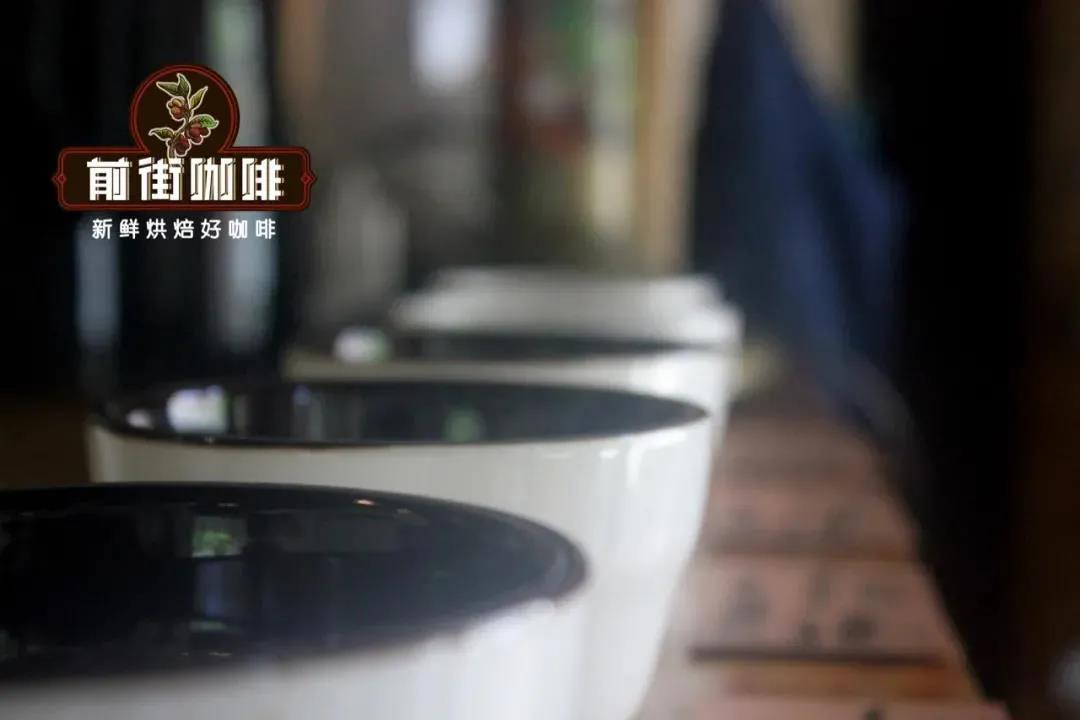
Yunnan Huaguoshan Coffee Bean Cup Test: rich aromas of fruit, melon, herbal aroma, supple in the mouth, middle nut, milk chocolate, lively and bright sour plums at the end, good balance on both cheeks, medium body in thickness, sweet and sour in the first, acidity in the aftertaste of apricot, citrus notes, and a little brown sugar. Yunnan small coffee cup test: the entrance is supple, the aroma of Asian herbs is lively and bright, the cheeks are lively and bright, the cheeks are sour, mellow and balanced, and the layers are rich. Yuyun dark chocolate, honey and sugar taste are obvious, and brown sugar flavor after complete cooling. Qianjie Coffee sharing Qianjie Coffee recommended that when these two cups of Yunnan coffee are washed, they tend to be balanced, neither highlighting the acidity nor decorating the end too much. The amount of coffee powder is 15g, the ratio of powder to water is recommended at 1:15, the flavor can be clearer at 1:16, the filter cup is kono filter cup, the temperature of brewing water is 88 degrees Celsius, the aim is to make the acid softer and the size of fine grinding / fine granulated sugar (the pass rate of sieve 20 is 80%).
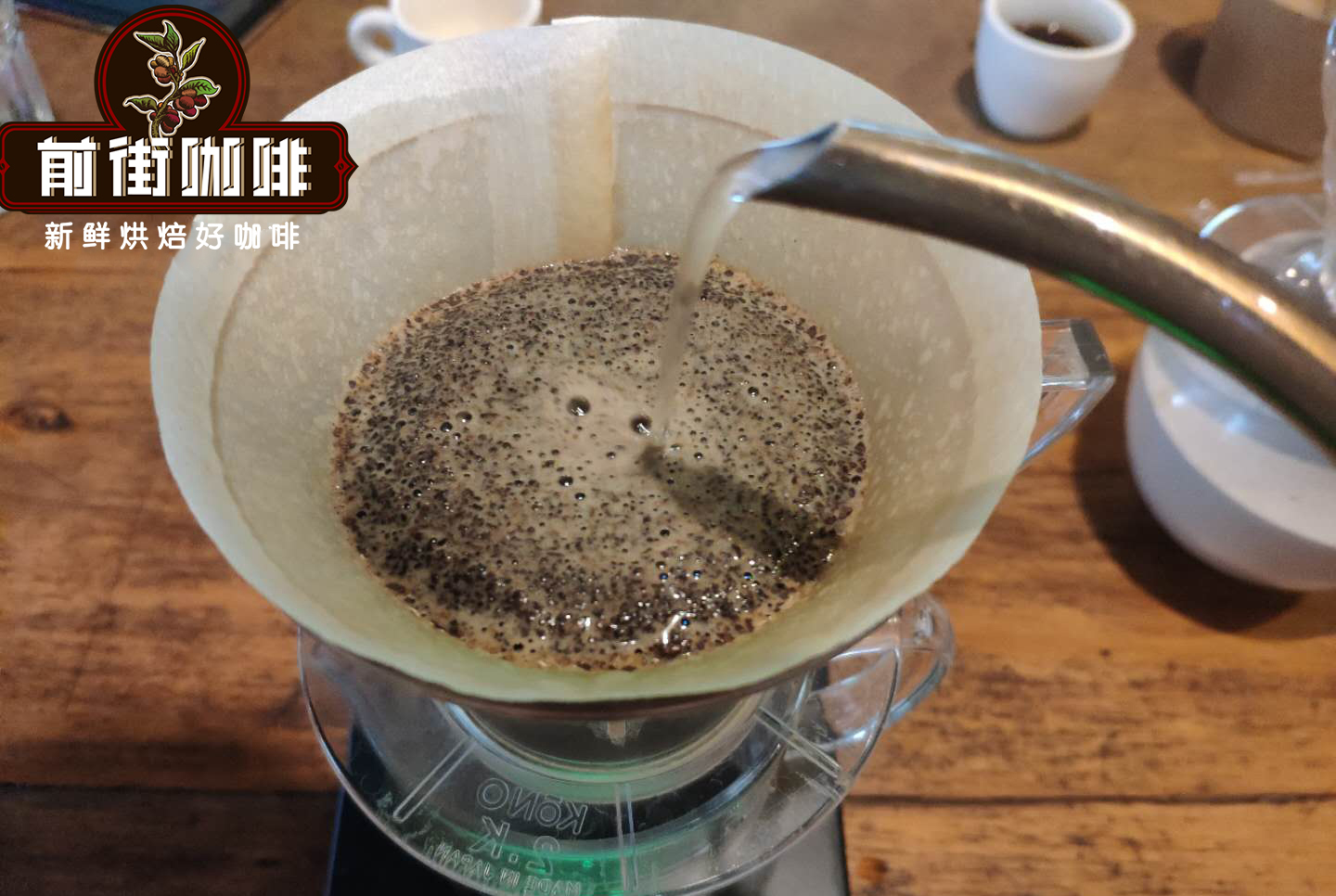
Qianjie sectional cooking technique: steaming with 30 grams of water for 30 seconds, injecting water around the circle to 125 grams for segments, continuing water injection to 225 grams when the water level is about to expose the powder bed, removing the filter cup when the water level is about to be exposed to the powder bed, (stifling starting time) extraction time is 2: 00 ". Through this cooking method, Huaguoshan iron pickup coffee beans you can drink obvious baked nuts, soft acidity, overall balance fragrance, solid dark chocolate aroma, light orange peel. You can taste nutty aromas of small Katim coffee, with herbs, chocolate, caramel and a hint of acidity in the finish.
For more boutique coffee beans, please add private Qianjie coffee on Wechat. WeChat account: kaixinguoguo0925
Important Notice :
前街咖啡 FrontStreet Coffee has moved to new addredd:
FrontStreet Coffee Address: 315,Donghua East Road,GuangZhou
Tel:020 38364473
- Prev
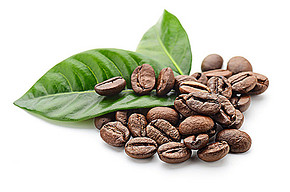
Introduction of Yunnan small Coffee hand-made Culture description of the flavor and taste of Yunnan coffee beans
Follow Ka Pin (Wechat official account vdailycom) found that Beautiful Cafe opened a small shop of its own. The first thing that comes to mind in Yunnan is rice noodles, but Yunnan also has a hidden foreign thing, Beijing, Shanghai, a necessary tool for petty bourgeoisie, even foreign laows praise the low-key aroma of Yunnan coffee.
- Next
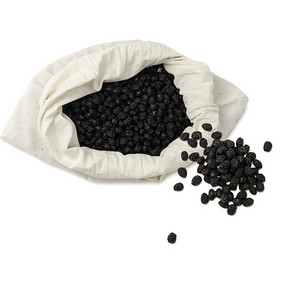
Vietnamese Coffee Culture, introduction to the quality of Vietnamese Coffee
Following caf é vdailycom (official account of Wechat) found that there are many Chinese who do not like coffee in Vietnamese coffee culture, but there are few Vietnamese who do not like coffee. The Vietnamese have elevated coffee drinking to a cultural level. Pei Zhirong, a Vietnamese poet, once compared himself to the other, and the coffee of words summed up the coffee of the Vietnamese to a large extent.
Related
- Detailed explanation of Jadeite planting Land in Panamanian Jadeite Manor introduction to the grading system of Jadeite competitive bidding, Red bid, Green bid and Rose Summer
- Story of Coffee planting in Brenka region of Costa Rica Stonehenge Manor anaerobic heavy honey treatment of flavor mouth
- What's on the barrel of Blue Mountain Coffee beans?
- Can American coffee also pull flowers? How to use hot American style to pull out a good-looking pattern?
- Can you make a cold extract with coffee beans? What is the right proportion for cold-extracted coffee formula?
- Indonesian PWN Gold Mandrine Coffee Origin Features Flavor How to Chong? Mandolin coffee is American.
- A brief introduction to the flavor characteristics of Brazilian yellow bourbon coffee beans
- What is the effect of different water quality on the flavor of cold-extracted coffee? What kind of water is best for brewing coffee?
- Why do you think of Rose Summer whenever you mention Panamanian coffee?
- Introduction to the characteristics of authentic blue mountain coffee bean producing areas? What is the CIB Coffee Authority in Jamaica?

